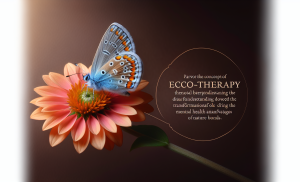The Mental Health Challenges Of Midlife: Strategies For Coping
In the article “The Mental Health Challenges of Midlife: Strategies for Coping,” you will discover essential insights into the unique psychological difficulties faced during the midlife stage. Recognizing the various challenges that arise during this period is crucial for maintaining emotional well-being and finding effective coping mechanisms. This article offers valuable strategies and techniques to navigate these mental health challenges, empowering you to lead a fulfilling and balanced life in your midlife journey.
Understanding Midlife
Defining midlife
Midlife is a stage that typically occurs between the ages of 40 and 60, marking the midpoint of the average human lifespan. It is a time of transition and reflection, characterized by various physical, emotional, and psychological changes. While the exact timing and experiences of midlife may vary for individuals, it is a significant period that often brings about both challenges and opportunities for personal growth.
Common emotional and psychological challenges in midlife
Midlife can be a time of heightened emotional and psychological challenges. Many individuals find themselves grappling with feelings of uncertainty, dissatisfaction, and anxiety as they face the realities of aging, shifting roles and responsibilities, and the pressures of societal expectations. The midlife crisis stereotype has become widely known, depicting individuals questioning their choices, identity, and purpose, and experiencing a sense of restlessness or discontentment.
Impact of midlife transitions on mental health
Midlife transitions, such as career changes, empty nesting, caring for aging parents, and dealing with physical changes, can significantly impact mental health. These transitions often disrupt familiar routines and roles, leading to a sense of instability and turmoil. The adjustments required during midlife can trigger a range of emotional responses, including stress, anxiety, and even depression. The challenges faced at this stage can have a profound effect on one’s mental well-being and overall quality of life.
Recognizing Mental Health Challenges in Midlife
Depression and anxiety
Depression and anxiety are common mental health challenges that can arise during midlife. The pressures and changes associated with this stage of life can exacerbate pre-existing mental health conditions or trigger the onset of new ones. Symptoms may include persistent sadness, loss of interest or pleasure in activities, difficulty concentrating, excessive worry, and restlessness. It is essential to recognize these symptoms and seek appropriate support and treatment when needed.
Stress and burnout
Midlife often brings increased stress due to a multitude of responsibilities and expectations. Balancing work, family, and personal life can be overwhelming, leading to feelings of burnout. Stress and burnout can manifest as physical and emotional exhaustion, irritability, decreased productivity, and a sense of detachment. It is crucial to prioritize self-care, set boundaries, and seek support to prevent the negative impact of stress and burnout on mental health.
Identity and purpose crisis
Midlife is a time when individuals may question their identity and purpose in life. The accomplishments and achievements of early adulthood may lose their significance, leaving individuals searching for deeper meaning and fulfillment. This self-reflection can lead to an existential crisis that impacts mental health. It is important to engage in self-exploration, seek personal growth opportunities, and reevaluate life goals and priorities to navigate this challenging period successfully.
Loneliness and social isolation
As children leave the nest and careers evolve, midlife can bring changes in social dynamics and relationships. This stage may be marked by a decrease in social connections, leading to feelings of loneliness and isolation. Building a support network and maintaining meaningful social connections are crucial for promoting mental well-being. Engaging in social activities, joining community groups, and nurturing friendships can help combat the negative effects of loneliness in midlife.
Physical health concerns
Midlife often coincides with age-related physical health concerns, such as chronic illnesses and hormonal changes. These physical challenges can impact mental health, as individuals may face limitations and a sense of vulnerability. It is important to prioritize physical well-being through regular exercise, nutritious diet, and appropriate medical care. Taking care of physical health can positively influence mental well-being and overall quality of life during midlife.
Changing family dynamics
Midlife is a time when family dynamics undergo significant changes. Children may leave home, and individuals may find themselves caring for aging parents or becoming grandparents. These transitions can be emotionally complex and stressful. Navigating these changing family dynamics may require open communication, setting boundaries, and seeking support from loved ones. Addressing and managing these changes can contribute to improved mental health and overall family functioning.
Effects of Midlife Challenges on Mental Well-being
Increased risk of mental health disorders
The midlife period can increase the risk of developing mental health disorders. The combination of various challenges, including hormonal changes, transitioning roles and responsibilities, and existential questioning can contribute to the emergence of conditions such as depression, anxiety, and substance abuse disorders. Identifying and addressing mental health issues promptly is crucial to prevent further decline in well-being and promote effective coping strategies.
Impact on relationships and work
Mental health challenges in midlife can have a significant impact on relationships and work. Individuals may experience strained relationships due to increased stress, emotional volatility, and changes in priorities. Work performance and satisfaction may also be affected, leading to decreased productivity and engagement. It is important to seek support, communicate openly, and address challenges proactively to maintain healthy relationships and job satisfaction during this stage.
Negative effects on physical health
The mind and body are intricately connected, and mental health challenges in midlife can have negative effects on physical health. Chronic stress and poor mental health can contribute to the development or exacerbation of physical conditions such as cardiovascular diseases, gastrointestinal issues, and weakened immune systems. Prioritizing mental well-being and adopting stress management strategies can positively influence physical health outcomes and overall well-being.
Reduced quality of life
Untreated mental health challenges in midlife can significantly impact quality of life. The symptoms and consequences of these challenges, including emotional distress, decreased functioning, and impaired relationships, can diminish overall well-being and life satisfaction. Recognizing the importance of mental health and seeking appropriate support and treatment can help mitigate the negative effects and improve overall quality of life during midlife.
Strategies for Coping with Midlife Challenges
Seeking professional help
When facing mental health challenges during midlife, seeking professional help is crucial. Mental health professionals, such as therapists, counselors, and psychiatrists, can provide support, guidance, and evidence-based interventions tailored to individual needs. They can help navigate the complexities of midlife challenges and develop effective coping strategies for optimal mental well-being.
Developing a support network
Building a strong support network is essential for coping with midlife challenges. This network may consist of trusted friends, family members, support groups, or online communities. Having people to share experiences, provide emotional support, and offer practical assistance can significantly enhance resilience and buffer the negative impact of midlife challenges. Cultivating meaningful connections and seeking support from those you trust can make a significant difference in navigating this stage successfully.
Prioritizing self-care
Self-care becomes increasingly important during midlife. Taking time for oneself, engaging in activities that bring joy and relaxation, and prioritizing self-compassion are crucial for maintaining mental well-being. This may include practicing mindfulness, engaging in hobbies or interests, engaging in physical activity, or simply allowing oneself to rest. Prioritizing self-care ensures that individuals have the emotional resources to cope with the challenges and demands of midlife effectively.
Engaging in stress-reducing activities
Midlife can be a stressful period, and engaging in stress-reducing activities is essential. This may include practicing relaxation techniques such as deep breathing exercises, meditation, or yoga. Engaging in regular physical activity, spending time in nature, or engaging in creative outlets can also help mitigate stress and promote mental well-being. Finding activities that bring joy, reduce tension, and promote relaxation can be a valuable tool for coping with the challenges of midlife.
Maintaining a healthy lifestyle
A healthy lifestyle is a vital component of mental well-being. This includes adopting habits that promote physical health, such as regular exercise, a balanced diet, and sufficient sleep. Engaging in activities that support mental and emotional well-being, such as journaling, practicing gratitude, and engaging in positive social interactions, is also beneficial. Maintaining a healthy lifestyle during midlife can help individuals manage the challenges they may face and promote overall well-being.
Managing emotions and thoughts
Managing emotions and thoughts is essential for coping with midlife challenges. This may involve identifying and challenging negative thought patterns, practicing emotional regulation techniques, and developing healthy coping mechanisms. Building resilience and cultivating a positive mindset can contribute to improved mental well-being and effective management of the emotional ups and downs that may arise during midlife.
Exploring new interests and passions
Midlife presents an opportunity for self-discovery and exploring new interests and passions. Engaging in activities that bring joy, spark curiosity, and provide a sense of fulfillment can be transformative. This may involve taking up a new hobby, pursuing further education, or exploring creative outlets. Rediscovering or reinventing oneself through new interests and passions can positively impact mental well-being and overall life satisfaction in midlife.
Reevaluating life goals and priorities
Midlife often prompts individuals to reevaluate their life goals and priorities. Reflection and introspection can help individuals align their values and aspirations with their current circumstances. This can involve assessing career paths, relationships, personal achievements, and overall life satisfaction. Reevaluating and realigning life goals and priorities can lead to increased fulfillment and a sense of purpose during midlife.
Building resilience and adaptability
Developing resilience and adaptability is crucial for navigating midlife challenges. Resilience refers to the ability to bounce back from adversity, while adaptability involves the capacity to adjust to changing circumstances. Building resilience and adaptability can be achieved through self-reflection, learning from past experiences, seeking support, and embracing personal growth opportunities. Cultivating these qualities enables individuals to thrive and navigate the complexities of midlife successfully.
Finding meaning and purpose
Finding meaning and purpose is a fundamental aspect of well-being, especially during midlife. Reflecting on personal values, beliefs, and life experiences can help individuals identify and pursue a sense of meaning in their lives. This may involve engaging in activities that contribute to the greater good, fostering connections with others, or making a positive impact on society. Finding and nurturing meaning and purpose can provide a sense of fulfillment and enhance mental well-being during midlife.
Navigating Midlife Transitions
Understanding common midlife transitions
Midlife is marked by various transitions that can significantly impact an individual’s well-being. Common transitions include career changes, empty nesting, caring for aging parents, and physical changes associated with aging. Recognizing and understanding these transitions can help individuals navigate them more effectively and minimize the associated challenges.
The impact of midlife transitions on mental health
Midlife transitions can have a profound impact on mental health. These transitions often involve significant changes in roles, responsibilities, and identity, leading to increased stress, uncertainty, and emotional upheaval. It is important to acknowledge and address the emotional challenges posed by midlife transitions to ensure optimal mental well-being during this period.
Strategies for managing midlife transitions
Managing midlife transitions requires adaptation and resilience. Developing effective coping strategies can help individuals navigate these transitions more smoothly and reduce the associated stress. Strategies may include seeking support, engaging in self-reflection, setting realistic expectations, and embracing personal growth opportunities. By proactively managing midlife transitions, individuals can minimize the negative impact on their mental well-being and maximize opportunities for self-discovery and growth.
Support and resources for navigating transitions
Navigating midlife transitions can be challenging, but numerous support networks and resources are available to provide guidance and assistance. These resources may include therapy or counseling services, support groups, online forums, and informational websites. Seeking support and connecting with individuals who have gone through similar experiences can foster a sense of community and provide valuable insights and strategies for successfully navigating midlife transitions.
Promoting Emotional Well-being
Enhancing emotional intelligence
Emotional intelligence refers to the ability to identify, understand, and manage one’s own emotions, as well as effectively navigate the emotions of others. Enhancing emotional intelligence can lead to improved emotional well-being by developing skills such as self-awareness, self-regulation, empathy, and effective communication. Increasing emotional intelligence can positively impact relationships, work, and overall satisfaction in midlife.
Developing coping mechanisms
Developing effective coping mechanisms is crucial for promoting emotional well-being in midlife. Coping mechanisms refer to the strategies and behaviors individuals use to manage stress, emotions, and challenges. Healthy coping mechanisms may include engaging in regular exercise, practicing mindfulness, seeking support from loved ones, and engaging in activities that bring joy and relaxation. Developing a repertoire of healthy coping mechanisms can enhance emotional well-being and resilience during midlife.
Practicing mindfulness and meditation
Mindfulness involves cultivating present-moment awareness and non-judgmental acceptance of one’s thoughts, emotions, and sensations. Meditation is a specific practice that cultivates mindfulness through focusing attention and calming the mind. Regular mindfulness and meditation practice can reduce stress, increase self-awareness, and promote emotional well-being. Incorporating these practices into daily life can be particularly beneficial during the challenges of midlife.
Exploring therapy and counseling options
Therapy and counseling can provide valuable support and guidance during midlife challenges. These therapeutic interventions offer a safe space to explore personal experiences, emotions, and goals, and provide individuals with coping strategies and tools to navigate the complexities of this stage. There are various approaches to therapy, including cognitive-behavioral therapy, psychodynamic therapy, and mindfulness-based therapies. Exploring therapy and counseling options can help individuals gain insight, develop skills, and promote emotional well-being in midlife.
Promoting positive self-talk and self-compassion
Positive self-talk and self-compassion play a crucial role in promoting emotional well-being. It involves replacing self-critical or negative thoughts with supportive and encouraging ones. Practicing self-compassion involves treating oneself with kindness, understanding, and acceptance, especially during challenging times. Cultivating a positive inner dialogue and practicing self-compassion can enhance self-esteem, resilience, and overall emotional well-being during midlife.
Embracing personal growth and self-discovery
Midlife provides an opportunity for personal growth and self-discovery. Embracing and actively seeking personal growth can lead to increased self-awareness, self-confidence, and a deeper sense of fulfillment. This may involve engaging in activities such as journaling, self-reflection, mindfulness practices, or seeking professional support. Embracing personal growth and self-discovery fosters emotional well-being and resilience during midlife.
Maintaining Healthy Relationships
Communicating openly and effectively
Open and effective communication is essential for maintaining healthy relationships in midlife. Sharing thoughts, feelings, and concerns in a respectful and constructive manner promotes understanding, trust, and connection. Active listening and empathetic communication can help individuals navigate relationship challenges and foster deeper connections with loved ones during this stage.
Addressing conflicts and resolving issues
Conflicts and issues may arise in relationships during midlife, requiring attention and resolution. It is crucial to address conflicts openly, honestly, and respectfully. Being willing to compromise, seeking mutual understanding, and actively working towards resolution can help prevent further escalation and maintain healthy relationships. Seeking professional help, such as couples therapy, can also provide valuable support and guidance in resolving relationship challenges.
Fostering intimacy and connection
Maintaining intimacy and connection in relationships is vital during midlife. This may involve regular quality time, shared activities, and open conversations. It is important to prioritize the needs of both individuals, nurture emotional and physical intimacy, and adapt to changing relationship dynamics. Fostering intimacy and connection promotes emotional well-being and strengthens the foundation of relationships during midlife.
Seeking support from loved ones
Seeking and receiving support from loved ones is invaluable during midlife. Trusted friends, family members, and partners can provide emotional support, guidance, and practical assistance during challenging times. It is essential to cultivate open and honest communication, express needs and concerns, and be receptive to support in order to enhance mental well-being and strengthen relationships during midlife.
Navigating changing dynamics with children and parents
Midlife often entails navigating changing dynamics with both children and aging parents. Empty nesting and assuming caregiving roles for aging parents can present unique challenges. Maintaining open lines of communication, setting boundaries, and seeking external support can help navigate these changing family dynamics. Adapting to new roles and responsibilities with empathy and understanding promotes healthy relationships and emotional well-being during midlife.
Reevaluating friendships and social networks
Midlife may be a time for reevaluating friendships and social networks. As individuals evolve and face new challenges, friendships may need to adapt or change. Assessing the quality and compatibility of social connections can promote overall well-being. Cultivating relationships based on shared values, common interests, and mutual support is essential for fostering healthy and meaningful friendships during midlife.
Managing Work-related Stress
Identifying sources of work-related stress
Work-related stress can significantly impact mental well-being during midlife. Identifying the specific sources of stress in the workplace is crucial for implementing effective strategies to manage it. These stressors may include excessive workload, inadequate work-life balance, challenging relationships with colleagues or superiors, or a lack of job satisfaction. Recognizing and addressing these stressors is essential to promote mental well-being in the workplace.
Setting boundaries and managing workload
Maintaining a healthy work-life balance is vital for managing work-related stress. Setting clear boundaries, both in terms of time and energy, can help individuals prioritize self-care and prevent burnout. Effective time management, prioritization, and delegation of tasks are essential tools for managing workload and reducing stress. Taking breaks, setting realistic expectations, and avoiding overcommitment can contribute to maintaining a healthy work-life balance during midlife.
Developing time management and prioritization skills
Developing effective time management and prioritization skills is crucial for managing work-related stress. This involves identifying priorities, breaking down tasks, setting deadlines, and allocating time accordingly. Utilizing tools such as calendars, to-do lists, and productivity apps can enhance efficiency and reduce feelings of overwhelm. Developing time management and prioritization skills can help individuals navigate their work responsibilities and maintain mental well-being in midlife.
Seeking support from colleagues and supervisors
Seeking support from colleagues and supervisors is valuable in managing work-related stress. Identifying a trusted support system within the workplace can provide a sense of community, sharing the workload, and promoting a healthier work environment. Establishing open lines of communication, seeking constructive feedback, and collaborating on problem-solving can contribute to reducing work-related stress and promoting mental well-being during midlife.
Considering career changes or transitions
Midlife may prompt individuals to consider career changes or transitions. Assessing career satisfaction, personal goals, and aligning one’s values and passions with work can lead to increased fulfillment and well-being. Exploring alternative career paths, seeking professional guidance, and investing in further education or skill development can pave the way for meaningful and fulfilling work experiences in midlife.
Combating Loneliness and Isolation
Joining social groups or communities
Joining social groups or communities is a powerful way to combat loneliness and isolation in midlife. Engaging in activities or hobbies that align with personal interests can provide opportunities for connection with like-minded individuals. This can include joining clubs, organizations, or attending community events. Actively seeking out and participating in social groups or communities promotes social connectedness and emotional well-being during midlife.
Building new friendships
Building new friendships in midlife is an important aspect of combating loneliness and isolation. Engaging in activities and socializing with new people can expand social networks and create opportunities for meaningful connections. Being open to new experiences, initiating conversations, and nurturing new friendships can help combat loneliness and foster a sense of belonging in midlife.
Utilizing technology for connection
Technology can be a valuable tool for combatting loneliness and isolation in midlife. Online communities, social media platforms, and video-calling applications provide avenues for connecting with others, regardless of geographical distance. Utilizing technology to engage in virtual social activities, connect with loved ones, and join online support groups can alleviate feelings of isolation and promote emotional well-being in midlife.
Volunteering and giving back to the community
Volunteering and giving back to the community can be fulfilling ways to combat loneliness and foster a sense of purpose in midlife. Engaging in volunteer work allows individuals to connect with others, contribute to a cause they care about, and establish a sense of belonging. It provides opportunities for social interaction, personal growth, and making a positive impact on society.
Attending support groups or therapy
Attending support groups or therapy can be instrumental in combatting loneliness and isolation in midlife. Support groups provide a safe and supportive environment to share experiences, receive validation, and gain insights from others facing similar circumstances. Individual or group therapy can provide professional guidance, teach coping strategies, and promote emotional well-being. Seeking support through these avenues can help individuals navigate feelings of loneliness and isolation during midlife.
Finding Meaning and Purpose in Midlife
Reflecting on personal values and beliefs
Finding meaning and purpose in midlife involves reflecting on personal values and beliefs. Self-reflection allows individuals to assess their priorities, passions, and aspirations. Identifying what truly matters and aligning actions with values can lead to a deep sense of fulfillment and purpose.
Exploring new passions and interests
Midlife provides an opportunity to explore new passions and interests. Trying new activities, hobbies, or learning new skills can open doors to personal growth and self-discovery. Exploring new passions and interests can ignite enthusiasm, curiosity, and a renewed sense of purpose in midlife.
Setting goals and creating a vision for the future
Setting goals and creating a vision for the future is crucial for finding meaning and purpose in midlife. This involves identifying aspirations, both personally and professionally, and outlining steps to achieve them. Setting goals promotes a sense of direction, motivation, and a clear path towards personal fulfillment.
Contributing to society and making a difference
Contributing to society and making a difference is a meaningful way to find purpose in midlife. Engaging in acts of kindness, volunteering, or advocating for a cause can provide a sense of fulfillment and a greater connection to the community. Making a positive impact on society contributes to a deeper sense of meaning in midlife.
Finding fulfillment in relationships and self-growth
Finding fulfillment in relationships and self-growth is a profound aspect of finding meaning and purpose in midlife. Nurturing meaningful connections with loved ones, fostering supportive relationships, and engaging in personal growth opportunities contribute to overall life satisfaction and a sense of purpose. Investing in relationships and self-growth promotes emotional well-being and a meaningful existence in midlife.
In conclusion, understanding the mental health challenges of midlife is crucial for promoting well-being during this significant stage of life. Recognizing and addressing common emotional and psychological challenges, as well as the impact of midlife transitions, is essential. By implementing strategies for coping with challenges, promoting emotional well-being, maintaining healthy relationships, managing work-related stress, combatting loneliness and isolation, and finding meaning and purpose, individuals can navigate midlife with resilience, happiness, and enhanced mental well-being.

















